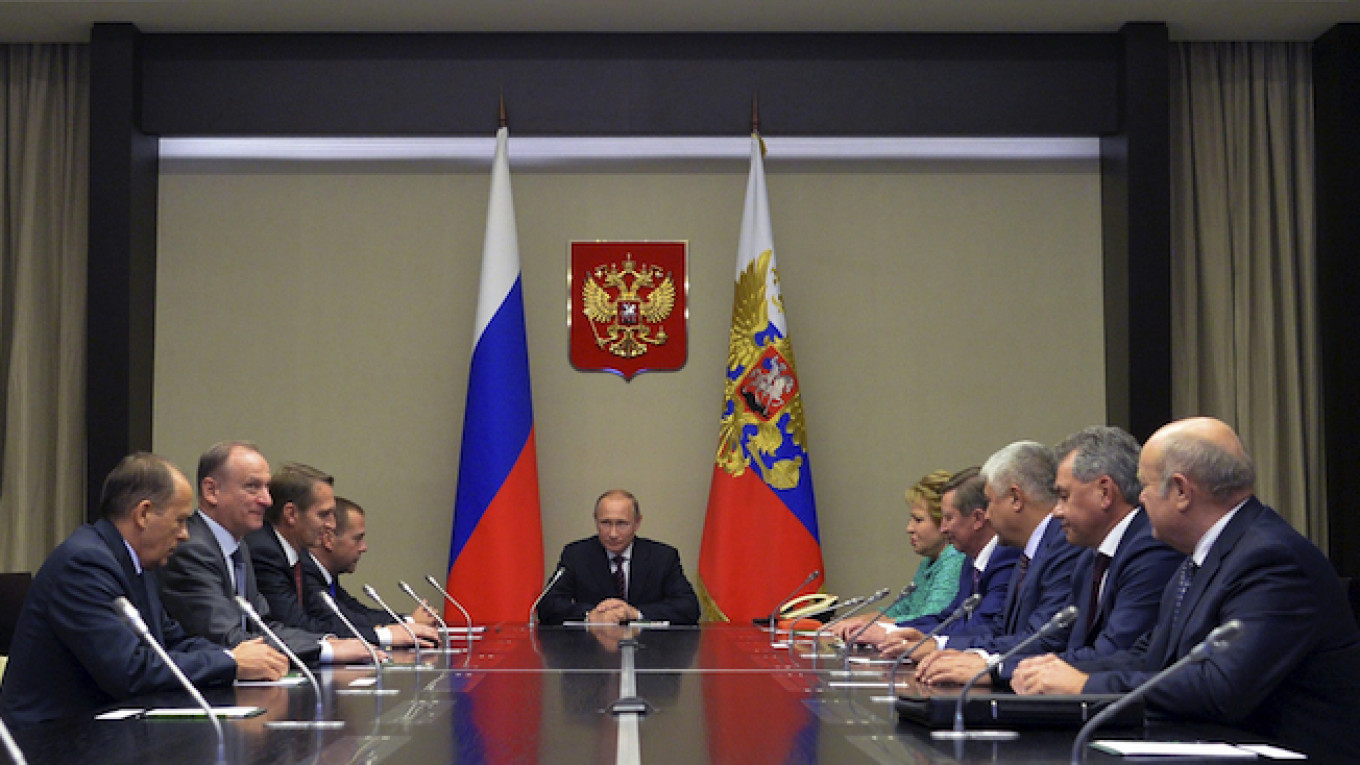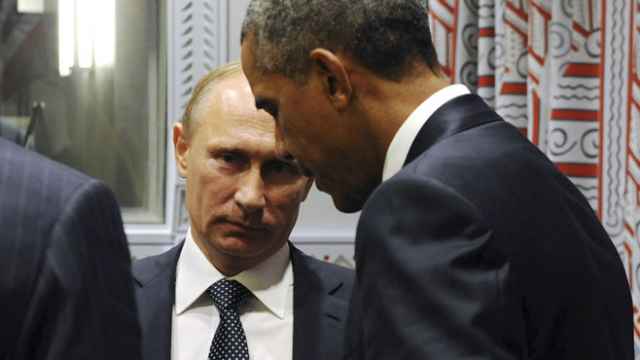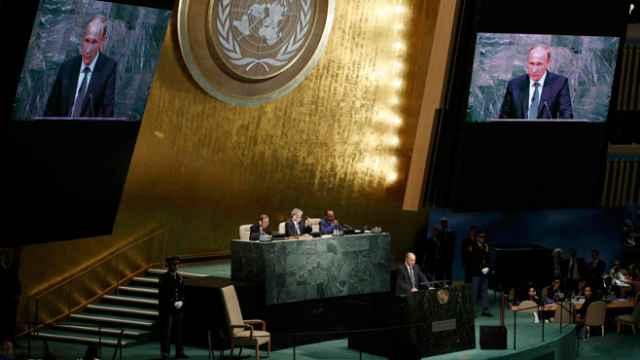President Vladimir Putin on Wednesday secured parliament's unanimous backing to launch air strikes against Islamic State militants in Syria, paving the way for imminent Russian military intervention in its closest Middle East ally.
Russia has already sent military experts to a recently established center in Baghdad that is coordinating air strikes and ground troops in Syria, a Russian official told Reuters on Wednesday.
The Russian Defense Ministry said the center is used to share information on possible air strikes in Syria.
Read more: What is Putin's 'red line' for a full-scale intervention in Syria?
Putin's spokesman, Dmitry Peskov, declined to say when Russian air strikes would begin or whether they had already occurred. But Russia has been steadily building up its forces in Syria and U.S. officials say such strikes could start any time.
A U.S.-led coalition has already been bombing Islamic State in Iraq and Syria. France announced at the weekend that it had launched its first air strikes in Syria.
Sergei Ivanov, the Kremlin's chief of staff, said parliament had backed military action by 162 votes to zero after President Bashar Assad asked for Russian military assistance to help fight Islamic State and other rebel groups.
"We're talking specifically about Syria and we are not talking about achieving foreign policy goals or about satisfying our ambitions … but exclusively about the national interests of the Russian Federation," said Ivanov.
Military Action
Russian military action would not be open-ended, he added.
"The operations of the Russian air force can not of course go on indefinitely and will be subject to clearly prescribed time frames."
He declined to say which aircraft would be used and when.
Approval to use force from the Federation Council, the upper house of parliament, did not mean Russian ground forces would be engaged in conflict, he said.
"As our president has already said, the use of ground troops has been ruled out. The military aim of our operations will be exclusively to provide air support to Syrian government forces in their struggle against ISIS [Islamic State]."
Putin's spokesman, Peskov, said the decision meant Russia would be practically the only country in Syria to be conducting operations "on a legitimate basis" and at the request of "the legitimate president of Syria."
The last time the Russian parliament granted Putin the right to deploy troops abroad, a technical requirement under Russian law, Moscow seized Crimea from Ukraine last year.
Analysts said Putin needed to get parliament's backing to ensure that any military operation was legal under the terms of the Russian constitution.
"If there will be a united coalition which I doubt, or in the end two coalitions — one American and one Russian — they will have to coordinate their actions," Ivan Konovalov, a military expert, told Reuters.
"For Russian forces to operate there legitimately … a law was needed."
A Message from The Moscow Times:
Dear readers,
We are facing unprecedented challenges. Russia's Prosecutor General's Office has designated The Moscow Times as an "undesirable" organization, criminalizing our work and putting our staff at risk of prosecution. This follows our earlier unjust labeling as a "foreign agent."
These actions are direct attempts to silence independent journalism in Russia. The authorities claim our work "discredits the decisions of the Russian leadership." We see things differently: we strive to provide accurate, unbiased reporting on Russia.
We, the journalists of The Moscow Times, refuse to be silenced. But to continue our work, we need your help.
Your support, no matter how small, makes a world of difference. If you can, please support us monthly starting from just $2. It's quick to set up, and every contribution makes a significant impact.
By supporting The Moscow Times, you're defending open, independent journalism in the face of repression. Thank you for standing with us.
Remind me later.






